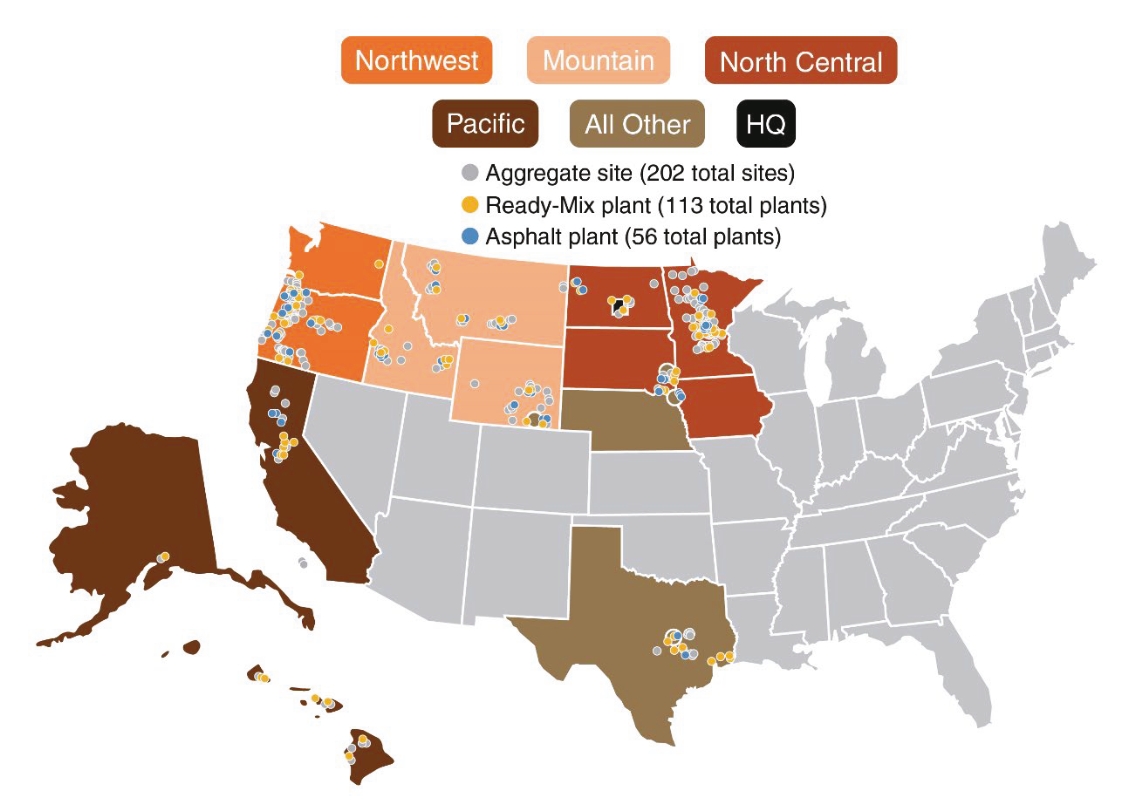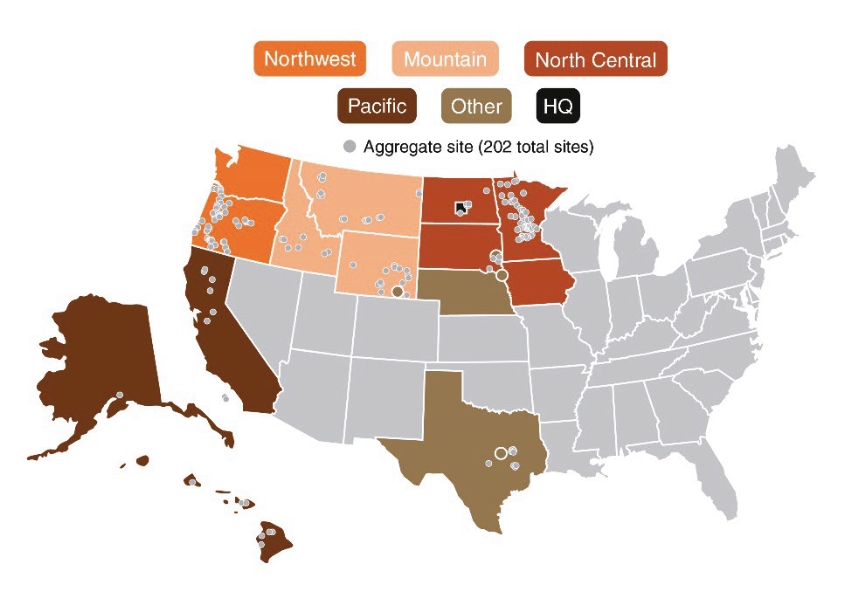Liquid asphalt and related storage capacity
Knife River distributes liquid asphalt primarily at its Energy Services and Pacific sites and has the capacity to service neighboring states through storage facilities capable of storing 260,000 tons of liquid asphalt across multiple states.
Customers
Knife River’s customers can be segmented into public and private-sector customers, with public-sector customers averaging about 80% of the Company’s revenues from contracting services. The public side includes federal, state and municipal governmental agencies with contracting services projects related to highways, streets and other public infrastructure. Mandates from governmental agencies largely depend on federal, state and municipal budgets allocated to expansion and improvement of national infrastructure. The private side includes a broad spectrum of customers across industrial, commercial and residential developers and other private parties. Note that the mix of sales by customer class varies year to year depending on the fluctuation of work.
Knife River’s top 15 customers accounted for about 30% of its 2021 revenue, of which 11 were state-level departments of transportation. The Company is not dependent on any single customer or group of customers for sales of its products and services, where the loss of which would have a material adverse effect on its business. No individual customer accounted for more than 10% of its 2021 revenue.
Competition
Knife River operates in a largely fragmented industry, including large, public companies and many small, privately held companies. Smaller, independent operators make up the majority of Knife River’s competition; however, it also faces competition in some markets from large, publicly traded U.S. aggregates producers, including Cemex S.A.B. de C.V., CRH plc, Eagle Materials, Inc., Granite Construction, Inc., HeidelbergCement AG, Holcim, Martin Marietta Materials, Inc., Summit Materials, Inc. and Vulcan Materials Company. The nature of Knife River’s competition varies among its products and geographies due to the generally local and regional nature of supply.
Knife River believes that it has a competitive advantage in aggregates through its strategically located reserves and assets in key areas, its high-quality reserves and its internal fleet of trucks, rail and barge. Knife River’s vertical integration and local knowledge enables it to maintain a strong understanding of the needs of its customers. In addition, Knife River has a strong commitment to environmental stewardship, which assists it in obtaining new permits and new reserves.
Regulatory Matters
Knife River is subject to customary regulation, including federal, state and local environmental compliance and reclamation regulations. Individual permits applicable to Knife River’s various operations are managed and tracked as they relate to the statuses of the application, modification, renewal, compliance and reporting procedures.
These federal, state and local laws and regulations include, among others, the federal Clean Air Act and the federal Clean Water Act requirements for controlling air emissions and water discharges, the Resource Conservation and Recovery Act as it applies to the management of hazardous wastes and underground storage tank systems and, occasionally, the Endangered Species Act. Noncompliance with these laws and regulations can subject Knife River to fines, loss of licenses or registrations or various forms of civil or criminal prosecution, any of which could have a material adverse effect on Knife River’s reputation, business, financial position, results of operations and cash flows.
Knife River is also subject to comprehensive environmental permit requirements, which are usually associated with new mining operations. Nonetheless, Knife River has been successful in obtaining mining and other land-use permits that provide for sufficient permitted reserves to support its operations.
Knife River did not incur any material environmental expenditures in 2021 and, except as to what may be ultimately determined with regard to the cleanup of a commercial property site acquired in 1999 and part of the Portland, Oregon, Harbor Superfund Site, Knife River does not expect to incur any material capital expenditures related to environmental compliance with current laws and regulations through 2024. Please see “Notes to Consolidated Financial Statements” for more information related to the environmental matter to which the Company is a party.



